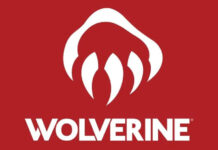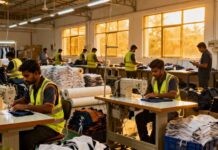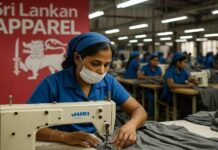The recently signed UK-US trade deal, aimed at boosting economic ties between the two nations, has left the apparel industry uncertain about its impact. Despite the agreement, the retention of the 10% tariff on UK apparel exports to the US dampens expectations of significant benefits for the sector.
Industry experts highlight that the continued tariff on clothing exports presents a barrier for UK-based apparel brands and manufacturers seeking to expand their presence in the US market. While the deal emphasizes collaboration in areas such as digital trade and financial services, the apparel industry remains concerned over the lack of specific provisions aimed at addressing its unique challenges.
Commenting on the agreement, industry insiders expressed their disappointment:
“This deal provides little relief for the UK apparel industry. The retention of the 10% tariff on clothing exports minimizes the potential for growth in the US market.”
The UK government, however, underscores the trade deal’s broader benefits, highlighting its potential to streamline import-export processes and enhance economic cooperation between the two nations. Officials claim the agreement will provide long-term opportunities for businesses across various sectors.
Meanwhile, US apparel importers may see limited direct benefits from the deal, with the 10% tariff on clothing imports from the UK remaining unchanged. This continues to influence pricing strategies and consumer affordability.
The agreement comes at a time when both economies are navigating headwinds from inflation, geopolitical uncertainties, and supply chain disruptions. While some industries may benefit from the trade pact’s provisions, the apparel sector’s concerns over tariffs and market access remain unresolved.
Looking forward, industry stakeholders are calling for further negotiations to address the pressing tariff-related challenges and to foster a more apparel-friendly trade environment between the UK and US. For now, the apparel industry’s outlook on the deal remains lukewarm as it continues to grapple with competitive pressures and trade barriers.

































